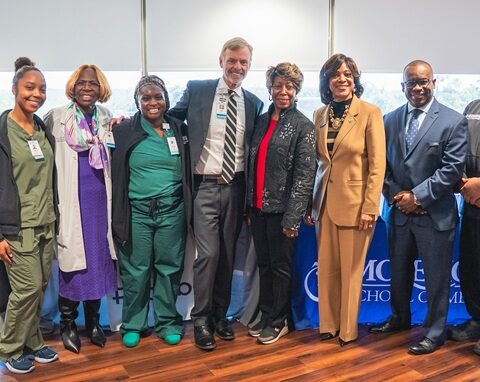Courtesy of the Morehouse School of Medicine
The Satcher Health Leadership Institute (SHLI) at Morehouse School of Medicine (MSM), with support from Otsuka America Pharmaceutical, Inc., a leader in mental health, today released the executive summary for “The Economic Burden of Mental Health Inequities in the United States Report.” SHLI looked at a four-year period (2016-2020) and found, at minimum, nearly 117,000 lives and approximately $278 billion could have been saved. The full report will be released and available for download in the coming days.
“Investing in mental healthcare saves lives and dollars — we have known this for decades, but until now did not fully understand the monumental impacts of neglecting to act,” said Daniel Dawes, professor and executive director of the Satcher Health Leadership Institute at Morehouse School of Medicine and author of The Political Determinants of Health. “For the first time, there is tangible evidence demonstrating how decades of systemic health inequities have yielded significantly worse outcomes for racial and ethnic minoritized, marginalized, and under resourced populations.”
SHLI also found that national estimates chronically underrepresent the actual burden of mental healthcare inequities, which has crippling implications on policies, funding, access to care and resources. To put this into perspective, nearly six million Americans are not accounted for in national reporting estimates regarding mental healthcare.
This comprises individuals who are often most vulnerable to mental illness including the incarcerated, nursing home residents, those living in assisted living facilities, the homeless/unhoused, active military, and those who are institutionalized in psychiatric facilities. Furthermore, SHLI found that excess costs due to mental illness and substance use disorder among the incarcerated and unhoused alone amount to an additional $63-$92 billion annually.
The Economic Burden of Mental Health Inequities in the United States Report suggests a series of solutions that stem from three key pillars to guide, and ultimately impact, policy decision making:
- Make sustainable, long-term investments into mental and behavioral health systems, including programs, treatments, supports, and interventions that will advance mental health equity
- Develop socio-culturally tailored approaches to mental and behavioral health services and programs
- Address the social and political determinants of health inequities
“The Satcher Health Leadership Institute leads the way in demonstrating the health inequities that minority populations face, which is magnified in The Economic Burden of Mental Health Inequities in the United States Report,” said Tarek Rabah, president and CEO, Otsuka North America Pharmaceutical Business. “Otsuka is committed to igniting conversations that will help every stakeholder fully appreciate that mental illness is a chronic, not acute, or temporary condition, and should be resourced and treated as such by policymakers and all stakeholders in the mental health community continuum.”
To read the executive summary, please click here.
Additional information about the Satcher Health Leadership Institute is available at SatcherInstitute.org.
For more on Morehouse School of Medicine, please visit MSM.edu.
About Satcher Health Leadership Institute at Morehouse School of Medicine
The Satcher Health Leadership Institute (SHLI) at Morehouse School of Medicine aims to be the leading transformational force for health equity in policy, leadership development and research. Rooted in the legacy of its founder, the 16th U.S. Surgeon General, Dr. David Satcher, SHLI’s mission is to create systemic change at the intersection of policy and equity by focusing on three priority areas: the political determinants of health, health system transformation, and mental and behavioral health. In conjunction with key strategic partners, SHLI enhances leadership among diverse learners, conducts forward-thinking research on the drivers of health inequities and advances evidence-based policies, all in an effort to contribute to the achievement of health equity for all population groups. Learn more at SatcherInstitute.org and HealthEquityNetwork.org.
About Morehouse School of Medicine
Founded in 1975, Morehouse School of Medicine (MSM) is among the nation’s leading educators of primary care physicians, biomedical scientists, and public health professionals. An independent and private historically-Black medical school, MSM was recognized by the Annals of Internal Medicine as the nation’s number one medical school in fulfilling a social mission—the creation and advancement of health equity. MSM faculty and alumni are noted for excellence in teaching, research, and public policy, as well as exceptional patient care. MSM is accredited by the Commission on Colleges of the Southern Association of Colleges and Schools to award doctoral and master’s degrees.





